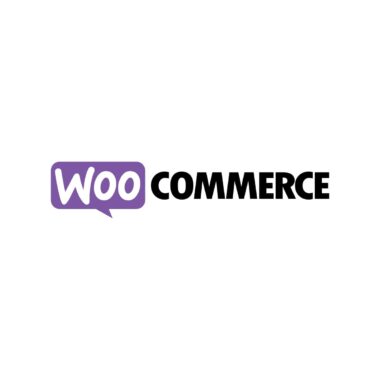Key Features of Airtable Project Management Software
Airtable, a contemporary project management software, stands out in the market for its unique blend of database functionality and spreadsheet versatility. Designed for teams and businesses of varying sizes, Airtable provides a flexible and intuitive platform for organizing, collaborating, and managing projects efficiently.
Key Features
- Customizable Views: Airtable’s standout feature is its ability to switch between multiple views like Grid, Calendar, Kanban, Gallery, and Form. This flexibility caters to different user preferences and project requirements, allowing teams to visualize and manage tasks in the most efficient way.
- Advanced Database Capabilities: Unlike traditional project management tools, Airtable functions like a database. Users can create relational databases, linking records between tables. This feature is particularly beneficial for managing complex projects with interdependent tasks and resources.
- Robust Integration and Automation: Airtable Project Management Software integrates seamlessly with a plethora of third-party applications such as Slack, Google Drive, Dropbox, and many more. Its automation feature allows users to set up custom triggers and actions, streamlining repetitive tasks and improving workflow efficiency.
- User-friendly Interface: Despite its advanced capabilities, Airtable Project Management Software maintains a user-friendly interface. Its drag-and-drop functionality and easy-to-navigate design ensure that users, regardless of their technical expertise, can utilize the software effectively.
- Collaboration and Sharing: Enhanced collaboration is a core aspect of Airtable. Teams can work simultaneously on the same database, share views, and send notifications. The permission settings ensure control over who can view or edit the information, safeguarding data integrity.
- Customizability and Templates: Airtable Project Management Software offers extensive customizability options with a wide range of templates catering to different industries and project types. Users can tailor their project space with unique fields, filters, and sorting options to fit their specific needs.
- Mobile Accessibility: The mobile app version of Airtable Project Management Software retains most of the desktop version’s functionality, providing users with the flexibility to manage projects on the go.
Unique Selling Points
- Airtable Project Management Software uniquely combines the simplicity of a spreadsheet with the complexity of a database.
- Its customizable views and templates cater to a wide array of business needs and individual preferences.
- The automation and integration capabilities significantly enhance productivity and workflow efficiency.
Target Audience Airtable Project Management Software is ideal for teams and businesses seeking a versatile and scalable project management solution. It is particularly beneficial for those who require a combination of project planning, data organization, and collaborative workspaces.
Conclusion In conclusion, Airtable offers a distinctive approach to project management, blending database power with spreadsheet simplicity. Its adaptability, ease of use, and robust integration capabilities make it a valuable tool for a wide range of business applications. Whether for small teams or large organizations, Airtable provides a comprehensive solution to streamline project management and enhance team collaboration.
Performance
Efficiency and Speed: In daily operations, Airtable demonstrates high efficiency, particularly in data handling and task management. The software’s performance is characterized by fast loading times and smooth transitions between different views. Users report minimal lag, even when handling large datasets or complex project structures. The cloud-based nature of Airtable ensures that data is synced in real-time across devices, enhancing team collaboration and productivity.
Usability and User Experience: Airtable’s intuitive interface plays a pivotal role in its day-to-day performance. Users appreciate the minimal learning curve, making it accessible to team members with varying levels of technical expertise. The drag-and-drop functionality, combined with a clean and organized layout, facilitates quick and easy navigation. Users can customize their workspaces to match their specific needs, which significantly improves the overall user experience.
Collaboration and Communication In terms of collaboration, Airtable excels by offering real-time updates and seamless sharing capabilities. Team members can work simultaneously on the same projects without overwriting each other’s contributions. The comment and notification features keep everyone informed and connected, streamlining communication and reducing the likelihood of errors or oversights.
Integration and Automation: Airtable’s integration with other tools, such as Slack, Google Drive, and various CRM systems, is a major asset in daily usage. These integrations enable a more cohesive workflow, as users can easily connect and automate various aspects of their projects. The automation features, such as setting up custom alerts and actions, significantly reduce manual effort, allowing teams to focus on more strategic tasks.
Customization and Flexibility: The software’s customization capabilities are highly beneficial for day-to-day management. Users can create unique fields, apply filters, and set up different views to match their project requirements. This level of flexibility ensures that Airtable can adapt to a variety of project types and management styles, from simple task tracking to complex project planning.
Mobile App Performance: Airtable’s mobile application maintains a high standard of performance, offering most of the functionalities available on the desktop version. The app is particularly useful for teams that require access to project data on the go, ensuring continuity and accessibility at all times.
Reliability and Security: On the reliability front, Airtable maintains consistent uptime, with rare occurrences of downtime or performance issues. Data security is also a strong point, with robust measures in place to protect sensitive information. Users can control access through permission settings, ensuring that data is not only secure but also correctly managed.
Conclusion: Airtable proves to be a highly efficient and user-friendly project management tool. Its blend of customization, collaboration features, and integration capabilities make it a reliable choice for a wide range of business needs. While it offers advanced functionalities, its ease of use remains one of its strongest aspects, making it suitable for both novice and experienced users in managing and executing daily tasks and projects.
Pros
Cons
In summary, Airtable Project Management Software offers a unique and flexible approach to project management, combining the strengths of databases and spreadsheets. Its customization, ease of use, and collaboration features make it a strong contender in the project management software market. However, considerations around pricing, advanced feature complexity, and certain functional limitations should be taken into account when evaluating its suitability for specific business needs.
Conclusion
Expert Analysis: In-Depth Insight into Airtable’s Project Management Capabilities
As an authority in the realm of project management software, my perspective on Airtable is shaped by a comprehensive understanding of what businesses need for effective project execution and management. Airtable’s unique positioning in the market, as a hybrid between a database and spreadsheet, offers a distinct approach to project management, which warrants an expert-level analysis.
Innovative Data Organization: Airtable Project Management Software transcends traditional project management boundaries by incorporating database functionalities. This innovative approach allows for the creation of relational databases, a feature not commonly found in standard project management tools. From an expert standpoint, this elevates Airtable in handling complex projects where relationships between different data types and workflows are crucial. It’s a significant leap from linear task management to multidimensional data orchestration.
Customization at Its Core: One of Airtable’s most compelling features is its high degree of customization. This platform doesn’t just offer templates; it allows users to create a completely tailored environment. From custom fields to unique sorting and filtering options, Airtable enables businesses to mold the software to their specific processes and workflows. This level of customization is a game-changer for businesses with unique project management needs, offering a level of flexibility that is rare in off-the-shelf solutions.
Seamless Integration and Automation: Airtable’s robust integration capabilities are a standout feature. The ability to integrate with a wide array of third-party tools like Slack, Dropbox, and various CRM platforms, coupled with its powerful automation features, streamlines workflows in a way that significantly reduces manual labor and error. In my professional assessment, this makes Airtable not just a project management tool, but a central hub for business operations.
User Experience and Accessibility: Despite its advanced features, Airtable Project Management Software maintains an intuitive and user-friendly interface. This balance of simplicity and sophistication is a key factor in its widespread adoption. The platform caters to both tech-savvy users and those with limited technical expertise, making it a versatile choice for diverse teams.
Considerations for Businesses: While Airtable Project Management Software offers impressive capabilities, it’s important for businesses to consider their specific needs. For those requiring detailed Gantt charts or advanced reporting tools, Airtable might fall short. Additionally, its pricing structure, while reasonable for the value provided, could be a factor for smaller businesses or startups.
Conclusion: Airtable Project Management Software is a forward-thinking solution in the project management software space. Its unique blend of database and spreadsheet functionalities, combined with high customizability, robust integrations, and user-friendly interface, makes it a strong candidate for businesses looking to optimize their project management processes. However, its suitability will vary based on the specific needs and scale of the business.





